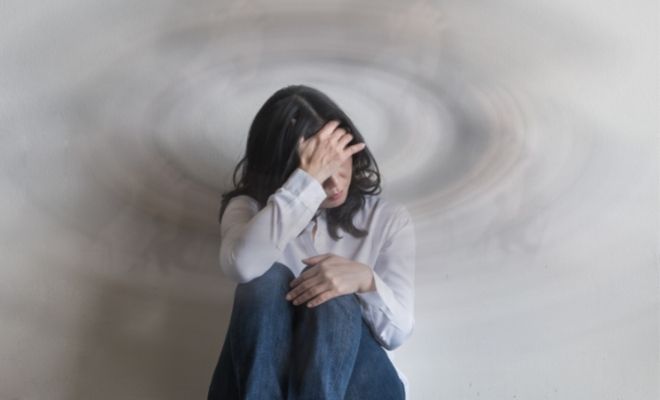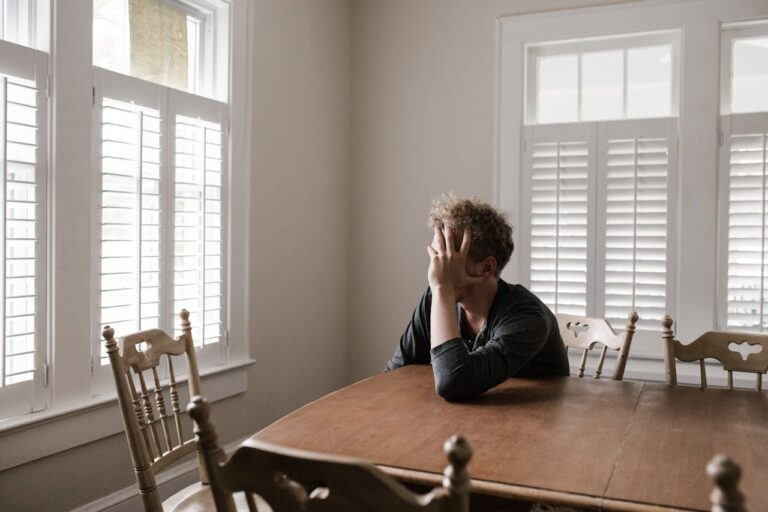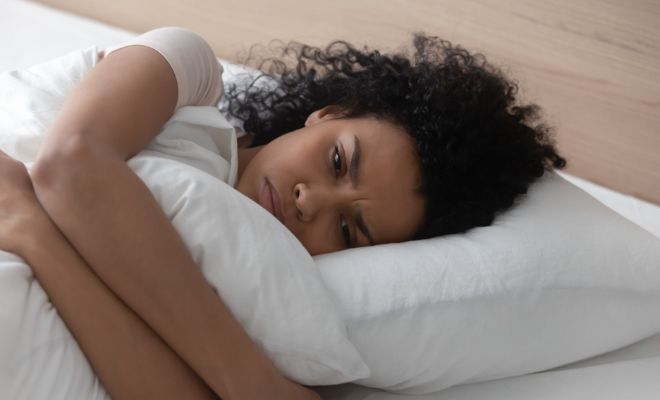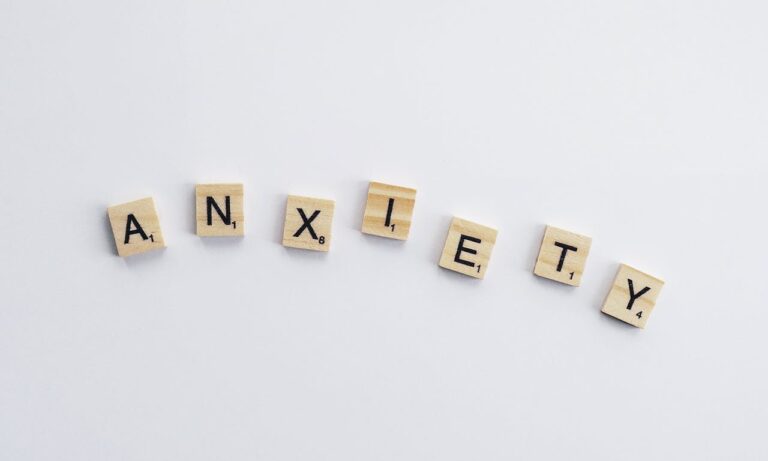Anxiety problems are so difficult to deal with because they have multiple causes, symptoms, and also consequences. One of the most frequent damage caused by anxiety is in the digestive system and, as we say, either as a symptom or as a consequence, different problems are also observed here. One of them is constipation due to anxiety; do you want to know how to avoid it?
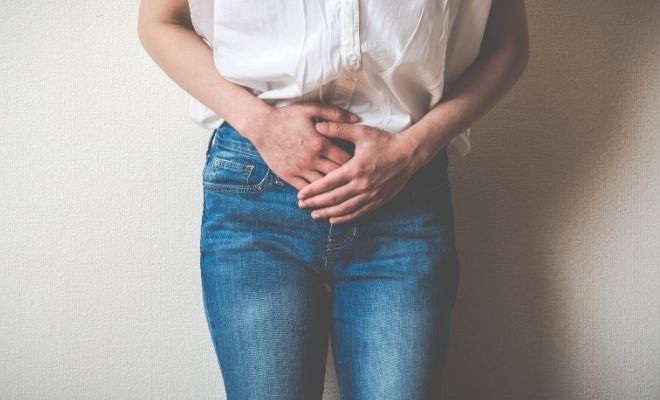
Anxiety and the digestive system
Anxiety and also stress have a direct impact on the digestive system. Among the frequent symptoms of anxiety is nausea, for example, and among its consequences a change in appetite. Anxiety in the stomach is well known, which either does not let you eat at all or leads you to binge eat and that, of course, produces its negative consequences.
Dry mouth, which is another of the most frequent consequences of anxiety, can also be linked to these digestive problems. Generally, it occurs because of anxiety medications, antidepressants or anxiolytics, but also because of that change in diet that we talked about before.
More impact of anxiety on the stomach is found in those panic attacks when anxiety shoots up that can even lead you to vomit. And the sensation of pricking or stomach pain may become constant due to high nervousness. Heartburn and heartburn are also among the frequent symptoms of anxiety and with all this we finally come to the two sides of the same coin: diarrhea and constipation due to anxiety.
Constipation as a cause and consequence of anxiety
It may seem contradictory that the same cause, that is, anxiety, produces such opposite effects as diarrhea and constipation. And while anxiety-related diarrhea is often more common than constipation, it’s also shorter in duration. While diarrhea responds to specific moments, constipation due to anxiety can be prolonged over time, thus passing from symptom to consequence. But why does constipation occur?
Anxiety and eating
One of the reasons for constipation due to anxiety is the change in diet. Either eat too much or eat too little, there is no middle ground. To this we can add that when you are suffering from an anxiety disorder your strength is scarce and you opt for fast foods that are not always the healthiest option. If anxiety is accompanied by stress and an excessively fast pace of life, this habit of eating anything, quickly, anywhere and at any time will favor intestinal transit problems.
The foods chosen in moments of anxiety do not help much either. Fatty foods that give a feeling of immediate satiety to calm that emptiness that produces anxiety. Binge eating has the same goal: calm the nerves calm the hunger for well-being. Because anxiety does not produce hunger, it produces emptiness and you will immediately see that this emptiness is not filled no matter how much you eat.
Anxiety and lifestyle
Constipation also appears because of that change in your lifestyle that causes anxiety when it has already become a real mental health problem. We are talking about an anxiety disorder as such, not about feeling nervous or stressed at specific moments. In fact, contrary to popular opinion, when anxiety problems are viewed from the outside, anxiety does not speed up your pace of life, it blocks it.
Anxiety problems do not make you go faster, they can even paralyze you and that is why it is so frequent that depression appears a little later. Because anxiety doesn’t let you do practically anything, because fear and the feeling of incapacity lead you to reduce social contact and any activity.
If you are in a permanent fight against anxiety, you have little strength left to go out for physical exercise, so this lack of activity also favors constipation. We already have the two factors that make constipation a consequence of anxiety, lack of activity and poor nutrition. Which brings us to the most important question, can anxiety constipation be avoided?
How to avoid constipation due to anxiety?
There are many things you can do to avoid constipation due to anxiety, but it happens as with any other or consequence of anxiety, until you put an end to this problem, until you manage to manage anxiety in such a way that it does not impact you on your life in an important way, you will not be able to get rid of all the discomfort it causes.
And that is achieved with psychological, with a lot of effort, with a lot of patience and with time. But as the therapy progresses, it is true that you can try to avoid some consequences of anxiety such as constipation.
Feeding
When it comes to constipation, food is the key. And surely you know the theory, but anxiety leaves you neither strength nor desire to organize. What you should avoid are the foods that you probably eat the most, fats, pre-cooked foods, pizzas and anything you find in the fridge. Chocolate is also among the foods to avoid to combat constipation.
What you should eat are foods rich in fiber, vegetables, fruits and have regular meal times. You won’t be able to avoid snacking between meals or avoiding binge eating at first, so try to have plenty of fruit or dried figs and dates at home so that at least intestinal transit is not affected.
In any case, do not expect to get it the first day, or the first week. Changing your eating habits takes time, and if you’re suffering from an anxiety disorder, you probably have other priorities. Face this problem like the rest of those that cause anxiety, little by little, it is a long-distance race in which you have to set small objectives and relativize if you do not achieve it.
Physical activity
You know that both for constipation and to overcome anxiety you have to do some physical activity. You know it because it’s obvious and you know it because the people around you keep repeating it to you like a sacred mantra. What is more complicated is putting it into practice because anxiety leaves you without energy, perhaps you have even encountered an and you don’t dare to go out.
It starts at home. Yes, you can walk around the house and you can also wear a tutorial with simple exercises. The ultimate goal will be to walk for an hour every day, but the above advice is also valid for the issue of exercise. Go step by step, go little by little.
Relaxation
Nothing better to learn to manage anxiety than relaxation. This will also help you to regulate your digestive system and there is a two for one that you might want to try: yoga. The, teaches you to relax, rest while moving your body and, something very important in this whole process, teaches you to breathe consciously.
Conscious breathing favors night rest, reduces and helps you find yourself, trust yourself, and recognize the small achievements of each day. Your stomach will appreciate it, your mind will appreciate it and it will be one more tool to use in this complicated process of overcoming anxiety.


